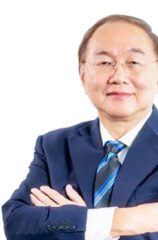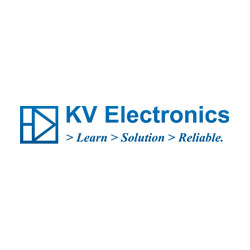In conversation with
Dr. Katiya Greigarn
MD | Kv Electronic Company Limited

FDI Spotlight: What is the DNA of KV Electronics?
Dr. Katiya Greigarn: KV Electronics has 3 separate divisions: KV Magnetics, KV E-Hospital which is a service business and Robotics which is our newest concept.
When we have started our business in the past, we were focusing only on consumer goods customers: like TVs and computer screens and it was going well, until China opened its market and made us relatively uncompetitive. It was a very challenging time. Fortunately we partnered with a company from Denmark and we moved from being a consumer oriented provider towards an industrial and telecommunication market provider.
Our industry is high tech labour intensive. We do invest a lot in new machinery but our human capital is still extremely important. The company portfolio includes both domestic and international distribution, with exports accounting for 45% of our total trade. Most of our trade partners are from Europe, but also from the US and Israel, particularly those partners focusing on the industrial and telecommunication sectors.
Working with international partners, it is important for us to be recognized by international standards. KV Electronics has both the ISO 9001, and ISO 14001 for manufacturing excellence and environmental compliance to ensure we maintain high standard products and services that can help the company become more competitive by positioning ourselves as a brand of quality rather than competing on cost at the lower end of the market.
Please collaborate regarding the importance of RFID for Thailand and how can this help the country’s manufacturing sector move up the value chain.
Dr. Katiya Greigarn: The RFID should be part of the manufacturing and logistics processes when we talk about the traceability of the products. This means that the RFID can speed up the traceability processes by storing data regarding the quality of the products and their origin. It is essential in the food market for example to know where each raw material is coming from, how it is processed and when is the due deadline. In fact, RFID is significant to all sectors and all companies that want to store data about each product shortening the product validation process. The SMEs have been aware of the RFID applying it since 5-6 years ago and now, the product begins to be popularized among different industries at domestic and international level.
How do you plan to become less labour intensive and more technology oriented?
Dr. Katiya Greigarn: Our business has explored 3 countries: Cambodia, Laos and Myanmar to see if we can relocate our KV manufacturing facility. We did our research regarding the relocation of human capital aspect. However, we need to implement more automation domestically first, in order to improve the quality and productivity to become less reliant on human capital before starting our relocation.
When we hire new people to work for us, they are unskilled. We need to train them. Our training cycle is like a routine for SMEs like us and is a burden financially.
What are the values you are looking for at a partner?
Dr. Katiya Greigarn: I would look for an international partner but first, we need to see if there is synergy between both of us. We need to understand each other and progress together. In this respect, higher technology is something we are looking forward to acquire with a new partner, offering a low-cost skilled labour and the best base for expansion here in SE Asia in exchange.
With the AEC coming into place in the end of 2015, what are the opportunities and the challenges that you foresee for electronics manufacturing here in Thailand?
Dr. Katiya Greigarn: For us, the AEC has opened a long time ago; the 31st of December 2015 was just the official formalization date. We explored at least three neighbouring countries to observe the culture and the business environment in order to decide where to set up. We saw that Vietnam is doing very well in the electronics industry, especially in the microelectronics so that is why here at KV Electronics we are trying to follow the same pattern. Here in Asia, I believe Thailand occupies the 6th place in electronics manufacturing, following China, Japan, Korea etc. The industries we see as promising for the future are power electronics and micro electronics development. When we produce these components for our partners, instead of sending them back to China where man power is used to assemble our products, we are sending them to Europe. This is where we see a new opportunity because our partners are using industrial robots to finalise assembly, reducing the processing time substantially.
What is your message of confidence?
Dr. Katiya Greigarn: The electronics industry is ever changing, with exciting new developments occurring in the microelectronics and robotics sector of which we are specialist in. If an investor is using high technology and has the financial resources, they should definitely look at ASEAN and at Thailand as the connectivity hub of the CLMV region.
